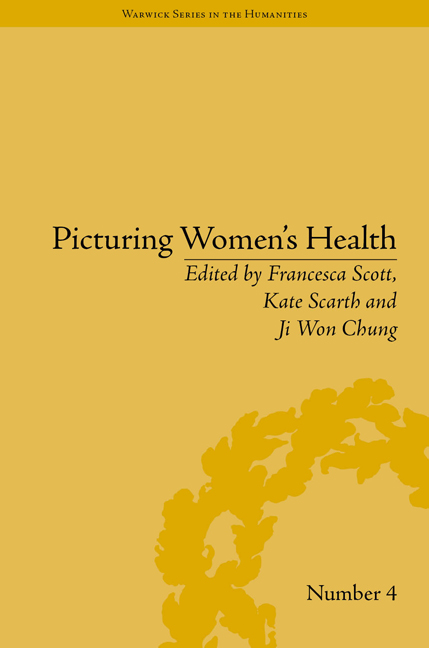Book contents
- Frontmatter
- CONTENTS
- Acknowledgements
- List of Contributors
- List of Figures
- Introduction: Picturing Women's Health
- 1 Sensibility and Good Health in Charlotte Smith's Ethelinde
- 2 Amazonian Fashions: Lady Delacour's (Re)Dress in Maria Edgeworth's Belinda
- 3 Transforming the Body Politic: Food Reform and Feminism in Nineteenth-Century Britain
- 4 Stagnation of Air and Mind: Picturing Trauma and Miasma in Charlotte Brontë's Villette
- 5 The Iconography of Anorexia Nervosa in the Long Nineteenth Century
- 6 Kate Marsden's Leper Project: On Sledge and Horseback with an Outcast Missionary Nurse
- 7 Constructs of Female Insanity at the Fin de Siècle: The Lawn Hospital, Lincoln, 1882–1902
- 8 The Fitness of the Female Medical Student, 1895–1910
- 9 Unstable Adolescence/Unstable Literature? Managing British Girls' Health around 1900
- NOTES
- Index
9 - Unstable Adolescence/Unstable Literature? Managing British Girls' Health around 1900
- Frontmatter
- CONTENTS
- Acknowledgements
- List of Contributors
- List of Figures
- Introduction: Picturing Women's Health
- 1 Sensibility and Good Health in Charlotte Smith's Ethelinde
- 2 Amazonian Fashions: Lady Delacour's (Re)Dress in Maria Edgeworth's Belinda
- 3 Transforming the Body Politic: Food Reform and Feminism in Nineteenth-Century Britain
- 4 Stagnation of Air and Mind: Picturing Trauma and Miasma in Charlotte Brontë's Villette
- 5 The Iconography of Anorexia Nervosa in the Long Nineteenth Century
- 6 Kate Marsden's Leper Project: On Sledge and Horseback with an Outcast Missionary Nurse
- 7 Constructs of Female Insanity at the Fin de Siècle: The Lawn Hospital, Lincoln, 1882–1902
- 8 The Fitness of the Female Medical Student, 1895–1910
- 9 Unstable Adolescence/Unstable Literature? Managing British Girls' Health around 1900
- NOTES
- Index
Summary
As the nineteenth century came to an end, writer, physician and ‘eugenic feminist’, Dr Arabella Kenealy, regaled the readers of the literary magazine Nineteenth Century with the transformative story of Clara. A year ago, Clara could not walk more than two miles without tiring: ‘now she can play tennis or hockey, or can bicycle all day without feeling it’. Through exercise and a vigorous lifestyle, Clara had toned and honed muscles, was slimmer, stronger and more agile. However, she had bartered many qualities for a ‘mess of muscle’ and lost her subtle charms in the process – sympathy, patience and elusive beauty. In their place Clara had developed a highly toned body, briskness, ‘mere muscular achievement’ and a ‘bicycle face’ (the face of muscular tension). She had a booming voice, neglected her domestic tasks and had abandoned ‘gliding’ in favour of ‘manly striding’. Clara had thus in Kenealy's view traded her femininity for a strident masculinity as she achieved robust health.
In contrast, just three years prior to Kenealy's pronouncements on Clara, the eminent London obstetrician and gynaecologist, Dr William Playfair, had praised English girls for setting good examples of health, citing ‘Lawn Tennis Girl’,
an excellent example of the healthy, well-developed, and unsentimental girl – the girl who does not think it necessary to devote herself to the study of her own emotions, and who finds in active physical exercise an antidote to the morbid fancies which are too apt to creep into the mind of the idle and self-indulgent.
His comments were made in a leading gynaecological textbook, but the descriptor ‘Lawn Tennis Girl’ and his quotation were lifted directly from an article describing the girl of today in an 1895 issue of Speaker magazine.
- Type
- Chapter
- Information
- Picturing Women's Health , pp. 159 - 172Publisher: Pickering & ChattoFirst published in: 2014



